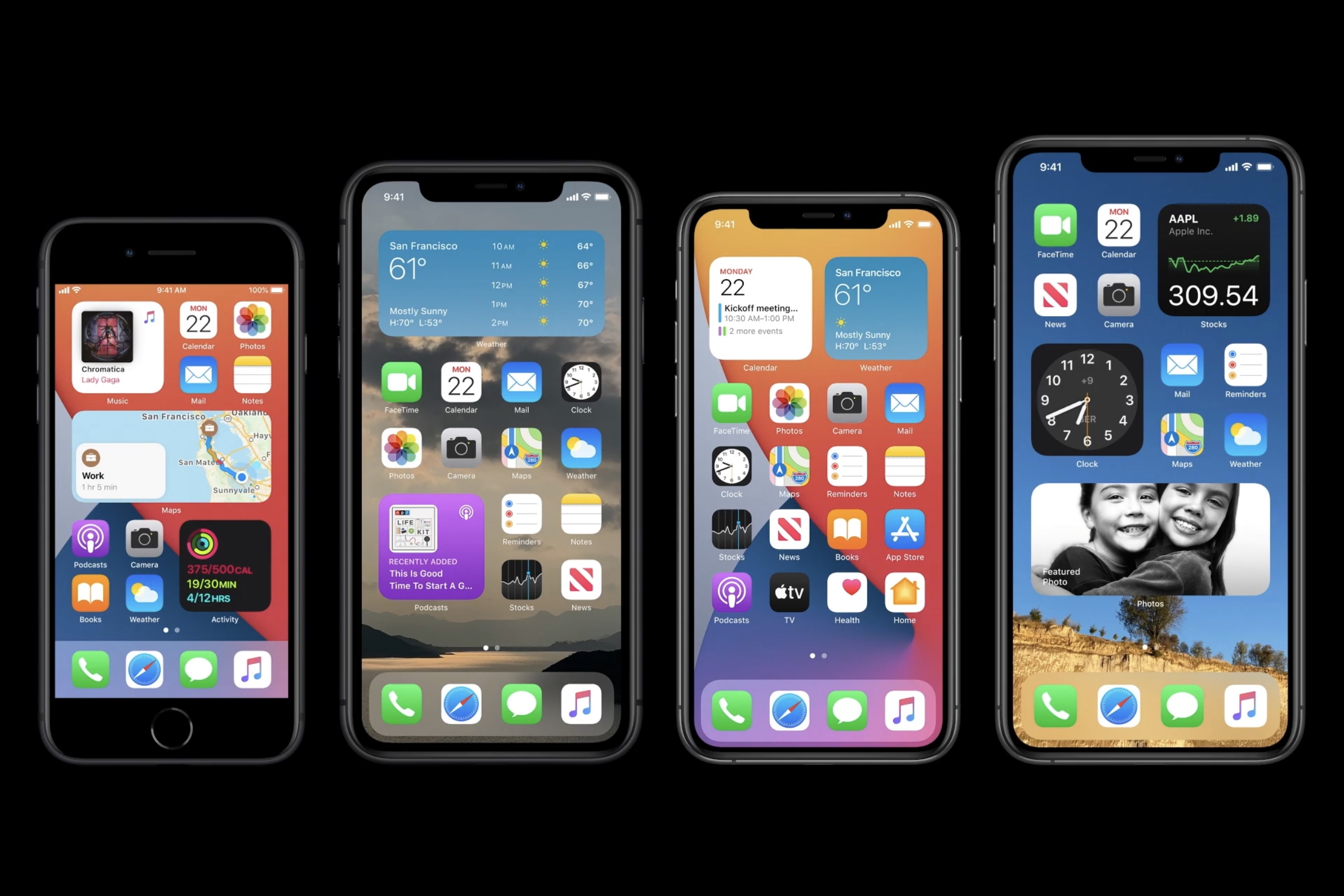Apple has made the betas for iOS 14 and iPadOS 14 available to the public in advance of this year’s fall hardware event. The showcase will almost certainly see Apple officially announce the iPhone 12, which will come with iOS 14 out of the box. However, you can now go ahead and download the iOS 14 beta onto your iPhone (or iPad), just in case you can’t wait another one or two months.
In light of this fact, and in preparation for September’s Apple iPhone event, here’s every device that supports iOS 14 and iPadOS 14 right now.
iPhones that support iOS 14

| Device |
| iPhone SE (2nd generation) (2020) |
| iPhone 11 Pro Max (2019) |
| iPhone 11 Pro (2019) |
| iPhone 11 (2019) |
| iPhone XS Max (2018) |
| iPhone XS (2018) |
| iPhone XR (2018) |
| iPhone X (2017) |
| iPhone 8 Plus (2017) |
| iPhone 8 (2017) |
| iPhone 7 Plus (2016) |
| iPhone 7 (2016) |
| iPhone SE (1st generation) (2016) |
| iPhone 6S Plus (2015) |
| iPhone 6S (2015) |
If your iPhone supports iOS 13, you’re in luck — iOS 14 will be available for all iPhone devices that support the previous generation of Apple’s mobile operating system. The cutoff point, and the oldest devices to support iOS 14, will be the iPhone 6S and iPhone 6S Plus, released in September 2015.
These requirements are typical of what we have seen in the past, with Apple supporting older devices up to about half a decade after release. If you still happen to be using an iPod Touch, we also have good news, as iOS 14 will be compatible with the latest 7th-generation devices.
iPads that support iPadOS 14

| Device |
| iPad Pro 11 (2020) |
| iPad Pro 12.9 (2020) |
| iPad (2019) |
| iPad Mini (2019) |
| iPad Air (2019) |
| iPad Pro 12.9 (2018) |
| iPad Pro 11 (2018) |
| iPad (2018) |
| iPad Pro 10.5 (2017) |
| iPad Pro 12.9 (2017) |
| iPad (2017) |
| iPad Pro 9.7 (2016) |
| iPad Pro 12.9 (2015) |
| iPad Mini 4 (2015) |
| iPad Mini 3 (2014) |
| iPad Air 2 (2014) |
Apple initially forked iPadOS from iOS in 2019, and the tradition continues this year with iPadOS 14. A hefty number of iPad devices will be supported back to the iPad Air 2, which was released in October 2014. Due to the hardware available within Apple’s tablet devices, we aren’t too surprised to see a tablet from six years ago supporting its latest software.
As with iOS 14, if your iPad received iOS 13 in the previous year, you’ll be able to continue your software update journey.
Why isn’t my iPad or iPhone compatible?
If your device failed to make the cutoff for iOS or iPadOS 14, don’t be dismayed. Apple will generally cut off devices that it feels would be unable to run its latest software up to standard; this is typically due to older hardware that may struggle with new software requirements.
In recent years, we have seen Apple take advantage of more modern technologies in iterations of its hardware, such as its Neural Engine for machine learning tasks. Older devices that never included the chip would be unable to run the dependent software.

What’s new in iOS 14 and iPadOS 14?
For the full-details, we recommend checking our articles on the best new features in iPadOS 14 and best features coming to iOS 14. Some of the most prominent features coming to iOS include the ability to add newly redesigned widgets to your home screen, better organize your Messages conversations, and using the new App Library to find your favorite apps.
For iPad devices, iPadOS 14 will bring new abilities to users with Apple Pencils, including the ability to write into any text field or copy and paste your handwritten notes as text. Apple has also released the latest version of MacOS, called Big Sur, as well as WatchOS 7.


